Through a prosperous career and a personal journey that has taken him from athletics to academia to business, Bob Trogele has both developed and abided by a core business philosophy comprised of what he believes are steppingstones to sure success. Here are his business philosophy’s seven most essential precepts.
BUSINESS PHILOSOPHY
These Seven Precepts Drive Bob Trogele’s Business Philosophy
- Be Open to — and Prepared for — Organizational Reinvention.
Tumultuous times in business sometimes call for top-to-bottom reinvention. Bob believes in a five-step process to help companies (much like individuals themselves) make a reinvention happen. First, ask: What is the winning strategy that got the organization to where it is today — what is the successful position of power it has achieved in its field? Second: what is the “impossible dream” the company would like to do next — what does the desired next phase look like? Third: Is the organization willing to put at the risk the success it has become in order to realize its “impossible dream”? Fourth: How does the organization need to reinvent itself to realize its “impossible future” — what does it need to do, and who does it need to be? The fifth step is not a question but a mandate: Start living into that possibility, taking action from it today — now — rather than marching toward it from the present.
- Play to Win, Not Just to Be in the Game.
This principle probably is not surprising coming from a one-time collegiate, professional, and Olympic basketball player. Bob has tried to instill in the business organizations in which he has worked the imperative that strategy and tactics should be all about winning. The challenge is that many people in business don’t come from sports backgrounds and so don’t always instinctively appreciate an imperative to win. As a result, many companies don’t set their sights high enough, don’t demand the best from their people, and aspire instead only for continuous improvement. Organizations that play to win talk a lot about competition and winning. Just like sports teams, they benchmark themselves and their competition using a balanced scorecard and strive ceaselessly to be to become #1 in their “league.”
- Win Through Transformational Leadership.
In order to get an entire organization to begin playing to win, Bob believes strongly in what he calls transformational leadership. Beyond establishing a winning aspiration that inspires people to take their game to the next level, transformational leadership involves getting others to face reality by understanding their current situation, multiplying a company’s strategic options, and maximizing what an organization has always done well. Once a company has committed to playing to win rather than just playing to be in the game, it forces people to make very different choices about investment, strategy, operations, technology, sustainability, and talent management.
- Make Hiring, Coaching, and Mentoring Paramount.
Bob believes that while strategies and budgets are important, it’s people — the human element — that is all-determining for a successful organization. Bob believes in investing time and energy into building “A” teams, knowing the organization with the best talent usually wins. Further, he believes it’s about the accomplishments and not the resumes; that when hiring people, the focus should be not on how many impressive jobs they’ve held but instead on their actual accomplishments.
- Win Through the Success of Others.
Hiring the best people alone is not enough. Talented people also must be coached and mentored and nurtured. Very often this necessitates some egolessness among business executives and managers, who like coaches and true teammates are driven to achieve success not just through their own efforts but through those of the entire team. It’s probably not surprising that as a one-time collegiate basketball player, Bob still ranks among Wichita State’s all-time leaders not in points scored but in career and single-game assists.
- Become Customer-Centric, Not Product-Centric.
Bob believes in falling in love with the customer and not the product. From working with the Boston Consulting Group early in his career he came to stop thinking in terms of driving strategy from a manufacturing plant — selling what you can make — and instead driving it back from the market: making what you can sell. From there it’s a relatively short leap to targeting specific technologies and specific products with specific marketing campaigns aimed at very specific customer segments on a product-by-product, sector-by-sector, and even country-by-country basis.
- Believe in a Higher Purpose.
Bob has spent his entire career in international agribusiness and agriculture, whose higher purpose is feeding the world. But for employees to really buy into a higher purpose with their hearts and souls, companies need to deliver on sustainable business performance. Bob believes this necessitates building an organization that is simultaneously both a business and a cause, and acting on both fronts, always.
